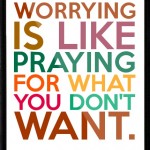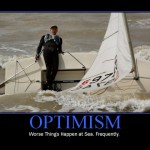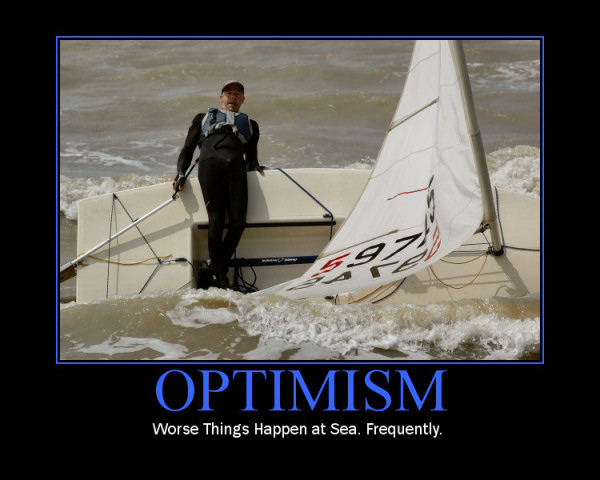16 Aug 2012
Would You Take Business Advice From Lily Allen?
Lily Allen may not be an authority on business, but she hit the nail on the head with her honest, irreverent spin on a timeless mystery – “how to know what to do when you have no idea and you’re not prepared”. In her platinum selling song, she sings:
I don’t know what’s right and what’s real anymore,
And I don’t know how I’m meant to feel anymore,
When do you think it will all become clear?
Everyone knows that we have been conditioned NOT to admit that we don’t know all of the right answers. Even though we know it’s not true, our teachers, bosses, politicians and even the media have modeled this “fake it until you make it” mentality. Since the mind doesn’t know the difference between a real or imagined event, acting ‘as if’ seems like the logical solution to temporary uncertainty, or does it?
“I don’t know” is a simple phrase. Simple and powerful at the same time. While there can be no doubt that to use it denotes uncertainty and the risk of embarrassment, with it comes an attribute that is far more rare and influential…authenticity!
Over the course of my life, I have been asked some difficult questions both personally and professionally – I’ve been put on the spot, caught unprepared and left exposed and vulnerable. Many times, I racked my brain to come up with the answer – a plausible response that hit the nail on the head or got me out of jail [metaphorically speaking] for free! Other times, I just got lucky.
But occasionally I must admit, “I just don’t know!” I simply cannot say for sure. I just don’t have the answer right now.
Sometimes admitting you don’t know can be the most empowering, intelligent, authentic and liberating response that you can offer. Compared to stumbling through a half baked idea, outright lying or trying to pull a cohesive response out of thin air, admitting you don’t know is a sane solution to this diabolical dilemma.
To be honest, none of us has “The Answer” to everything. If you think you do, chances are you know even less than you thought! If someone has taken the time to ask a question, seek your business advice, and placed their trust in your expertise, they deserve pearls of wisdom not propaganda.
In fact, in order to be a true leader and to earn authority, which is the foundation of your ability to influence others, it is simply not enough to be knowledgeable. You also need to be truthful. Therefore, in order to master the power of influence, you must establish yourself as both honest and powerful in your communications.
When in doubt, “I don’t know but I will find out” is the best answer.
 Have you ever heard somebody say to another person “Don’t spill that coffee” and seen that exact thing happen, that you know will happen…. which is that they do spill the coffee by accident!
Have you ever heard somebody say to another person “Don’t spill that coffee” and seen that exact thing happen, that you know will happen…. which is that they do spill the coffee by accident!
Right now you are laughing because it is funny. It is funny because it happens all the time. And if you are still laughing it may be because you are masterful at getting what you don’t want?
For some reason it seems the more you tell someone NOT to do something, the more likely it is that it WILL happen. Why is that? Sometimes we attribute it to simple disobedience – for example a child testing a parent, when the parent has said “don’t do that.”
However, it is more than just a simple testing of the boundaries. There is a biological, scientific reason for getting what you don’t want and it has to do with the way that our brains are wired.
So why do we always seem to do the very thing that we are told not to do?
Our Subconscious brain struggles to process negatives. In effect it hears and acts upon the command to do the very thing that we DON’T want it to do – i.e. “smoke” or “spill the coffee.”
In fact, the subconscious mind cannot think – it can only ACT or CREATE based upon what is of VALUE. That value is a product of our map of reality and every event we have experienced over a lifetime. The subconscious is actually 100x more powerful than the conscious mind and the subconscious is an AUTOMATIC mechanism. It kicks in and acts about 1/2 second before the conscious mind does – so if your embedded beliefs, attitudes, values etc. are negative, you end up always getting what you don’t want.
If you say to yourself over and over “Don’t spill the drink” or you tell a child “Don’t miss the ball”, you are focusing the attention of the subconscious mind on the opposite of what is desired. Instead of saying “carry the drink safely to the counter” or “hit the ball son”, you have commanded the automatic mechanism to do exactly what you DON’T want. The automatic mechanism of the mind is focusing on missing the ball. It’s not that the mind doesn’t hear the word “Don’t” (or cannot understand it) it’s that the ENTIRE SENTENCE is designed to create the opposite of what is wanted. You have to look at the sentence in its entirety to understand why it will not work to create the desired effect.
That is in fact why many books self help books, DVDs and audio CDs DON’T work to deter unwanted habits and behaviours. Many of the NLP and hypnosis practitioners have loaded their materials with embedded commands like “you will not have any problems sleeping”, “you will not want to have any more cigarettes” or “you will no longer have cravings for fried chicken and beer”. Unfortunately, these programs are doomed from the start. They only serve to further entrench these undesirable patterns.
If you want to change behaviour or get around a problem you must think of new ways to phrase the desired behaviour in a positive way. This requires the removal of all negatives or references to the problem in the sentence. Rather than saying “Don’t mess up the calculations” you could say “Be careful to ensure all the calculations in the spreadsheet are double checked and correct”. Instead of saying to your child “Don’t throw that toy at your sister” you should say “Put the toy down now and come to me”.
Instead of telling yourself what NOT to do, focus exclusively on what you want do to (or have happen). It can be difficult for some to unlearn old patterns and pessimistic language. However with practice and the positive reinforcement that comes from achieving the results that you desire most, you will find yourself speaking and behaving in new and empowering ways.
Article Source: http://EzineArticles.com/3142214
08 Dec 2011
Is Your Optimism Holding You Back?
 “The pessimist complains about the wind; the optimist expects it to change; the realist adjusts the sails.” William Arthur Ward
“The pessimist complains about the wind; the optimist expects it to change; the realist adjusts the sails.” William Arthur Ward
I was reminded of this brilliant principle last week when I spoke to one of my business coaching clients. There can be no doubt that we are living in interesting times…. the global financial crisis has impacted overall spending and consumer sentiment – and this has hurt many small businesses around the country. It’s no good hoping that circumstances will change – in order to survive we all need to dig deep and find creative ways to work smarter not harder.
Jim Collins, in his book, “Good to Great,” talks about this very interesting paradox that he calls “The Stockdale Principle”. According to Collins, “you have to be realistic about your current situation and yet, stay optimistic about the future”.
General Stockdale was the highest ranking American prisoner of war in Hanoi, Vietnam. Over the years he began to notice an interesting phenomenon – optimism could in fact be a liability. His fellow prisoners (who were the eternal optimists) constantly set themselves up for disappointment. They set huge milestones – “we will be rescued by Christmas” – but those milestones came and went year after year and with it… their will to live.
Conversely, the prisoners who looked at the painful day-to-day reality they were in and channeled their energies to the right places survived. This is not to say that the second group were pessimists but rather realists that maintained an unwavering faith in the end game, and a commitment to survive despite the brutal fact of their incarceration and torture over a period of years.
Here’s how Stockdale put it in his own words: “I never lost faith in the end of the story. I never doubted not only that I would get out, but also that I would prevail in the end and turn the experience into the defining event of my life, which, in retrospect, I would not trade.”
How many of us would look back on seven years of detention – with regular torture, dismal living conditions and an uncertain future – as an experience we would not trade? Do you regard the greatest obstacles or challenges in your life as the defining moment that shaped who you are today or do you choose to look at them as an excuse or reason why you have not achieved more?
Have you ever sat back and thought how this distinction between optimism versus reality could apply to your business/career or your life in general? Where in your life are you ignoring reality in favour of being optimistic and missing a crucial opportunity to take action?
Take for example my business coaching client that I mentioned above. She has an employee who doesn’t take responsibility for her actions, doesn’t pay attention to details and is often defensive and reluctant to take direction and feedback. This employee is negatively impacting the entire work environment as everyone gets caught up in the drama of it all. My client doesn’t want to let the employee go and is resisting doing what she knows that she must. She hopes that it will somehow improve without any action on her part – she is now learning the distinction between reality and optimism. When she sees the difference for what it is, then and only then, will she become decisive and take action.
Another area where it’s easy to be blinded by optimism is in the financial arena. Do you have detailed financial reports, KPIs and cashflow forecasts in place to drive your decision making or are you simply relying on your optimism instead of reality? Failure to effectively plan in this area (especially in these tough times) could lead to a cash crunch and the demise of your business.
Take a moment today to examine your relationship to optimism, pessimism and realism. Success belongs to those who operate from both sides of the Stockdale Paradox. The key is balance – knowing when to accept reality and take appropriate action AND never losing faith in the end of the story. If you can walk this delicate line of balance and responsibility, you increase your odds of making good decisions and this will lead to your inevitable success and breakthrough results.
In life, we will all experience setbacks, disappointments, loss and challenges. What separates successful people from the rest is how you deal with those inevitable struggles. This is a very important distinction and it is what divides the winners from the losers. You must never confuse faith that you will prevail in the end – which is something that you can never afford to lose sight of – with the discipline to confront the brutal facts and reality of your current situation, whatever that might be.
Article Source: http://EzineArticles.com/2884021
28 Sep 2011
What If You’ve Already Got The Life You Deserve?
 I have been fortunate to discover that there is a reason for all things – even those that are senseless and incomprehensible – and that we have to learn to trust that there is a bigger picture that perhaps we, as mere human beings, can never truly understand.
I have been fortunate to discover that there is a reason for all things – even those that are senseless and incomprehensible – and that we have to learn to trust that there is a bigger picture that perhaps we, as mere human beings, can never truly understand.
What if you’ve already go the life you deserve?
The most beautiful expression of this idea I’ve ever read was in a children’s book ‘Little Soul in the Sun’ by Neil Donald Walsh. In the story, Walsh talks of a Little Soul who wants to be incarnated as a human being to learn ‘forgiveness’. A Friendly Soul agrees to oblige him by incarnating as a person to do something to the Little Soul that will help him learn the lesson of forgiveness. But the Friendly Soul issues a plea of caution and says, ‘at the very moment that I strike you down, please promise me that you will remember who I really am, a Friendly and loving Soul, otherwise we will be doomed to repeat the process over and over again until we get the learnings or until another Little Soul comes down to help us find the way out.’
In other words everything that happens in our life – the good the bad and the just plain ugly is the result of an agreement that we have made at some point in our existence to experience certain things so we can become better human beings and move on to the next lesson. We are all doing the best that we can with the resources that we think we have available. Everything is a learning experience and if viewed from that context, we can become empowered to create a world around us in the likeness of our dreams and wildest imaginations.
Even the really hard stuff happens for a reason. There is no failure, only results.
It isn’t about assigning blame or beating yourself up – it’s about being responsible for your response and deciding how best to move forward and attract the results that you want.
Blaming others – even if it’s legitimate – robs you of your power. It doesn’t help you move on – it’s a complete waste of your time and emotion. Put it in the past and find a way to ensure you never repeat it.
Things don’t change – WE change.
The only way to be the change that you want to see in the world is to take responsibility for the life that you say you want to be living. Regardless of the events and circumstances that have occurred, no answers may be found revelling in excuses.
You are already living the life you deserve and imagine in your mind every day. If you are not happy and you want more, you need to step up and BE more. Otherwise, you are destined to repeat the same experiences over and over until you learn the lesson. Even though it may be a hard pill to swallow, on some level you agreed to experience everything that has happened to you – you did this with the understanding that it would help you to grow and to evolve as a human being.
In fact, you already have the life you deserve (and wanted). It begs the question though – “when are you going to forgive yourself (and others), get the “learnings” and move on to the next important lesson that you have chosen for your evolution?”

Rhondalynn Korolak, Author of Financial Foreplay® and On The Shoulders of Giants
Life isn’t always easy – there can be no question about that. It’s unpredictable and it’s often hard to make sense of what happens. Some of the events in our journey end up being nothing more than minor irritants, while others are more like being hit by a Mack truck at 200 kph.
Regardless – we have to play the hand we are dealt.
Part of the process of coming to terms with whatever occurs in your life is to find a way to make sense of it. If science indicates that objective reality doesn’t actually exist, it is very much up to us to create a reality that helps us move on and find some meaning. As W Mitchell so accurately points out, ‘It’s not what happens to you, it’s what you do about it that matters’.
I like to think of it as choosing to ‘make chicken soup out of chicken shit’. And it is often in these times of desperation or perspiration that we accomplish our greatest achievements. We play the hand that we have been dealt and in so doing we stretch beyond the finite boundaries of probability and skill into the realm of possibility and inspiration.
For Christopher Reeve a random riding accident changed his life. Everything he was in terms of his career and how people perceived him vanished the instant he hit the ground. And yet he was able to muster his resources and master his own mind so as to find a reason to carry on. I’m sure becoming paralysed was not part of his life plan. I’m sure there must have been times that he was angry and bitter, but these feelings obviously didn’t consume him.
The simple truth is that Christopher Reeves found himself in a wheelchair at just 43 years old. Nothing could be done to change that. There was no way to wind back the clock and no way to repair the damage. His condition was permanent. But his state of mind and any negative emotions he felt were temporary and 100% within his control. He had two options: (1) let the event consume his life and extinguish his spirit or (2) accept his condition and make the best use of his time and influence to advance science in the hope that someday others with spinal cord injuries might walk again. In many ways, he became more of a superhero after his accident than he had previously been in his film roles because he created a vision and a purpose that was bigger than the event that changed his life.
He accepted the cards he was dealt in the game of life and he played with the courage, determination and strength of character of a superhero. Perhaps Christopher himself said it best, ‘I think a hero is an ordinary individual who finds the strength to persevere and endure in spite of overwhelming obstacles. They are the real heroes, and so are the families and friends who have stood by them.’
Perhaps today, January 5th, 2011…….yes TODAY – is the perfect time for us to all stand back and celebrate the superhero within ourselves and others. If we choose to play the hand we have been dealt to the best of our ability…I think we will all look back [someday] and agree that the “game” was worthwhile.











